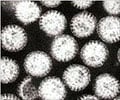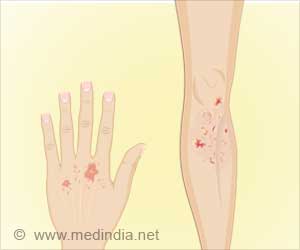Researchers have made a significant advancement in identifying a new genetic variation that affects a child’s risk of getting Kawasaki disease (KD)
Researchers have made a significant advancement in identifying a new genetic variation that affects a child’s risk of getting Kawasaki disease (KD), an illness characterized by acute inflammation of the arteries throughout the body.
The researchers from Japan’s RIKEN SNP Research Centre along with a team at the University of California, San Diego (UCSD), discovered a genetic variation that influences immune activation and the response to standard treatment. They also found that it involves a risk of developing in blood clots and heart attack.The study led by Yoshi Onouchi, M.D., Ph.D., SNP Research Center, RIKEN, Yokohama, Japan, studied DNA from hundreds of American children and their parents.
The findings identified a region on chromosome 19 linked with the disease. In particular, a series of variants across four genes in the region emerged more frequently in individuals with the disease than those in the healthy control group.
“This was a wonderful collaboration. Dr. Onouchi used our DNA to make this observation. Now we are building on that observation,” said Jane Burns co-author, M.D., professor and chief, Division of Allergy, Immunology, and Rheumatology, UCSD Department of Pediatrics.
The researchers focused on one of these genes called ITPKC, which came out as the most likely candidate.
The gene lies in a pathway that affects the activation of T cells, one arm of the body’s immune response system.
Advertisement
“This single gene jumped out as an obvious candidate because it is involved in immune activation, and KD is a disease of immune over-activation,” said Burns.
Advertisement
Burns also said that a large number of KD patients suffer heart attack, heart failure, or require transplant
“A significant number of KD patients suffer irreversible coronary artery damage, which can lead to heart attack, heart failure, or require transplant,” noted Burns.
“Our goal at RCHSD is to create a genetic test for KD patients that will indicate whether the patient is at increased risk. If that’s the case, we can use additional treatments and potentially reduce future complications,” he added.
Kawasaki Disease is a pediatric illness characterized by fever and rash and is most prevalent in Japan.
In San Diego County, 20 to 30 children per 100,000 children less than five years of age are affected each year. More than 50 new patients are treated annually at RCHSD. The illness is four to five times more common than some more publicly recognized diseases of children such as tuberculosis or bacterial meningitis.
If untreated, KD can lead to lethal coronary artery aneurysms. KD tends to run in families, suggesting that there are genetic components to disease risk.
Source-ANI
LIN/P







